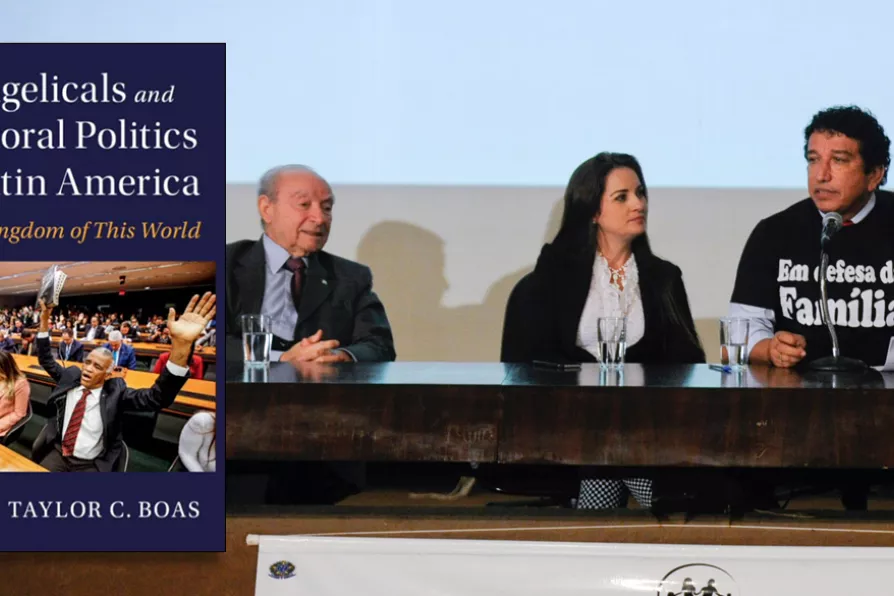JOHN GREEN, MARIA DUARTE and ANGUS REID review Fukushima: A Nuclear Nightmare, Man on the Run, If I Had Legs I’d Kick You, and Cold Storage

 Disgraced Brazilian Evangelical pastor Magno Malta, a staunch ally of Jair Bolsonaro, presides over the conservative ‘Relaunching of the Parliamentary Front for the Defence of the Family’ 2015
[Senado Federal/CC]
Disgraced Brazilian Evangelical pastor Magno Malta, a staunch ally of Jair Bolsonaro, presides over the conservative ‘Relaunching of the Parliamentary Front for the Defence of the Family’ 2015
[Senado Federal/CC]
Evangelicals and Electoral Politics in Latin America – A Kingdom of This World
By C. Boas
Cambridge University Press, £75
LATIN AMERICA, since the Spanish conquest, has been a stronghold of the Catholic church which has dominated life and politics. As elsewhere, the Catholic church has been a strong conservative force and bulwark of dictatorships.
With the eruption of liberation theology in the 1960s, following the Second Vatical Council, a number of Latin American theologians took the side of the poor and challenged the conservatism of the Catholic hierarchy.
It was also in the 1960s and ‘70s that Evangelism became a significant factor in US politics.

JOHN GREEN is fascinated by a very readable account of Britain’s involvement in South America

MARIA DUARTE recommends a chilling examination of the influence of Evangelical Christianity over the far right in Brazil

HENRY BELL notes the curious confluence of belief, rebuilding and cheap materials that gave rise to an extraordinary number of modernist churches in post-war Scotland

JOHN GREEN welcomes an insider account of the achievements and failures of the transition to democracy in Portugal









